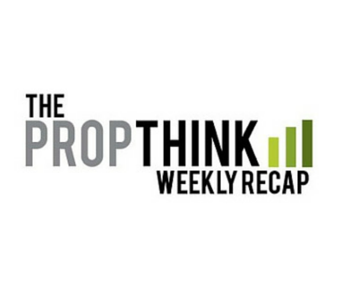One of the more anticipated events of early 2015 played out on Friday – detailed results from an early study of Biogen Idec’s (BIIB) experimental Alzheimer’s treatment, aducanumab (BIIB037).
Biogen first teased the results late last year saying that the amyloid plaque-clearing antibody produced statistically significant improvements in cognitive function and amyloid clearance compared to placebo in patients with the degenerative disease. Investors were titilated, sending the stock up 50% in the 5 months since. That’s particularly impressive considering BIIB was a $70 billion company at the time.
Investors got a real look at the data during a presentation in Nice on Friday morning. Aducanumab produced dose- and time-dependent reductions in amyloid plaque in the brain, as well as a statistically significant slowing of clinical decline based on two exploratory endpoints: the Mini Mental State Examination (MMSE) and Clinical Dementia Rating (CDR) scales.
Investors have high expectations for future sales of aducanumab. Since management hinted at positive results in 2014, Biogen Idec has added almost $40 billion in market value. These are small sample sizes, but this is the most encouraging data from the amyloid-clearing class of drugs yet, which includes phase 3 blowups from products like Elan’s (ELN) bapineuzumab and Eli Lilly’s (LLY), solanezumab in the last half-decade.
On Thursday we sent out an update on all of our recent small- and mid-cap biotech picks. Big kudos to Mr. Zack Fink who’s had a couple of big winners for PropThink subscribers in the last 6 months: Bluebird Bio (BLUE) up 240% from his original call and Trillium Therapeutics (TRIL) up 175% since the holidays. For an update on these and more (including TKMR, IPH.PA, QURE, CEMP, MRNS, among others) read the article at PropThink.com. Better yet, get your own subscription for actionable analysis of the biotech sector.
Also this week, the U.S. FDA approved Retrophin’s (RTRX) Cholbam (cholic acid) for pediatric and adult patients with bile acid synthesis disorders, and for peroxisomal disorders. With the approval also comes a Priority Review Voucher from the FDA, which allows the owner to expedite the review of any drug from the normal 10 months to 6 months. Recently, another PRV (the coupons are transferable) was bought by Gilead Sciences (GILD) for $125 million in the fall of 2014. RTRX jumped $4 on the news as investors digested the potential cash value of the PRV, and the market potential of Cholbam. RTRX pulled down a $130 million financing a day later, and the stock is finally back to its highs from this same time last year.

On the topic of priority review vouchers, Tekmira (TKMR) has started chatting up the possibility of a Tropical Disease PRV in conjunction with the potential approval of its TKM-Ebola, which is now being tested in a proof of concept study in Sierra Leone. Read more about this new trial, the PRV, and timing for results, here.
The big news LAST weekend out of the American College of Cardiology’s annual scientific session was the comparison of long-term outcomes for two new (and competing) drugs targeting cholesterol, the injectables known as PCSK9 inhibitors. Regeneron’s (REGN) alirocumab and Amgen’s (AMGN) evolocumab both lowered cholesterol meaningfully in large, randomized studies – no surprise – and both appear to have a beneficial effect on cardiovascular outcomes. The drugs, however, may have negative neurocognitive effects.
In an editorial accompanying the publications in the New England Journal of Medicine, Drs. Neil Stone and Donald Lloyd-Jones explained that while PCSK9s are on track to become “important arrows in our quiver,” calling for their widespread use would be premature without followup from other ongoing outcomes trials. Both drugs are expected to be approved later this year, with alirocumab a few months ahead.
Curious what we’re writing about at PropThink? Learn more and get a trial subscription – one month for $50. Questions? Just reply to this email!



